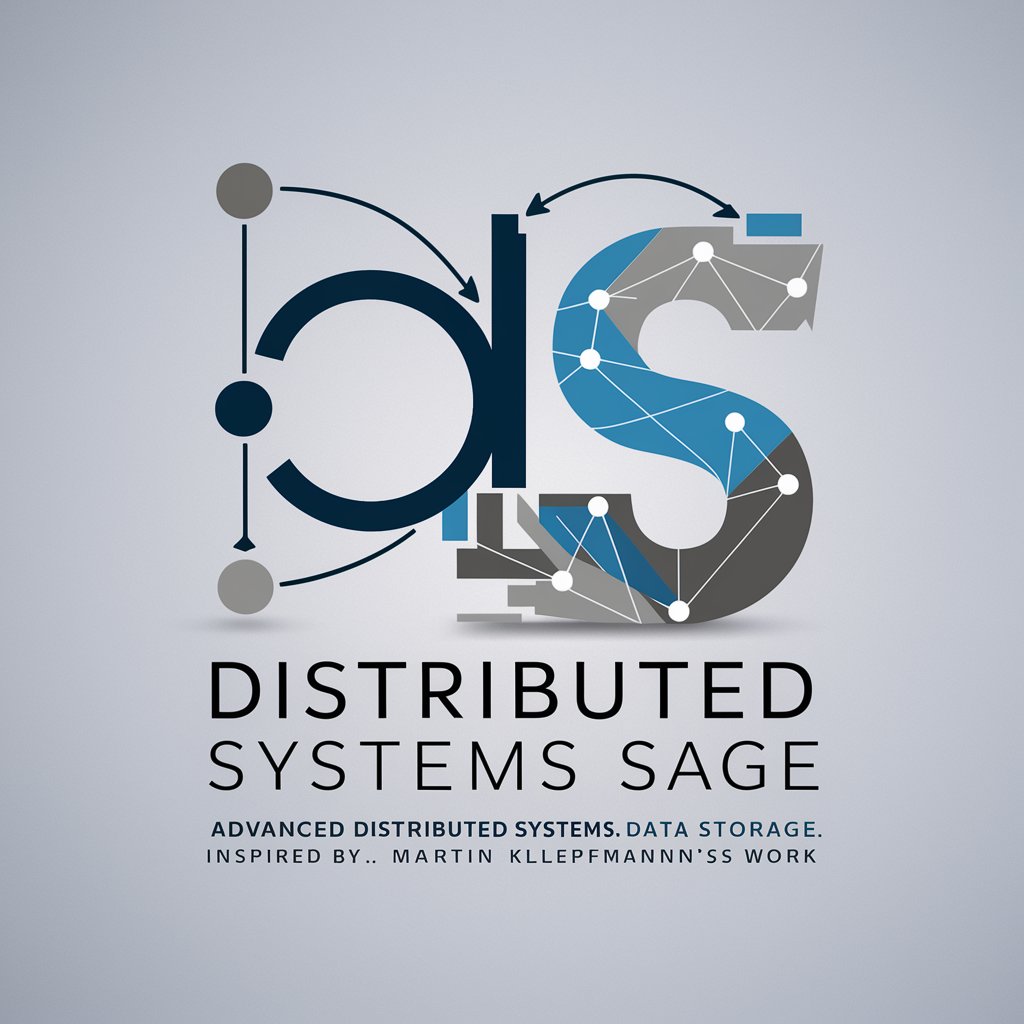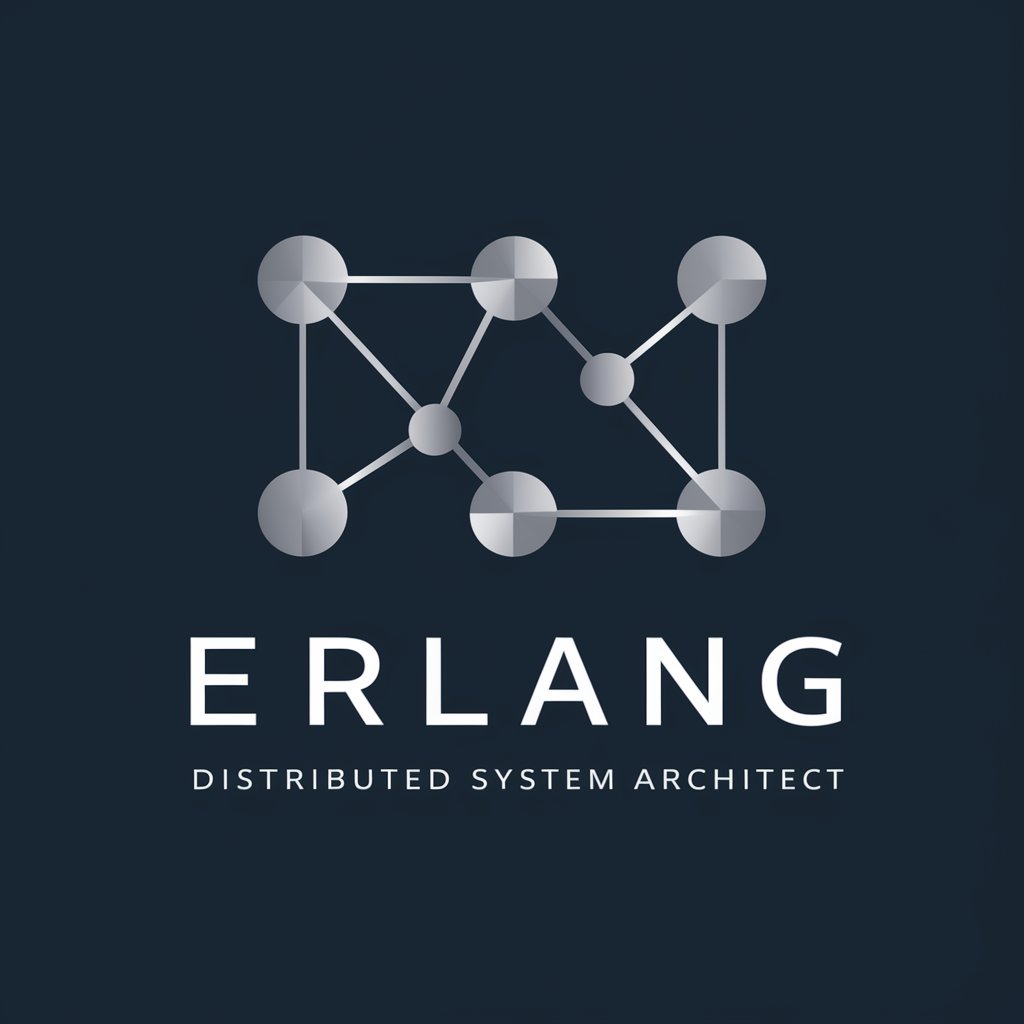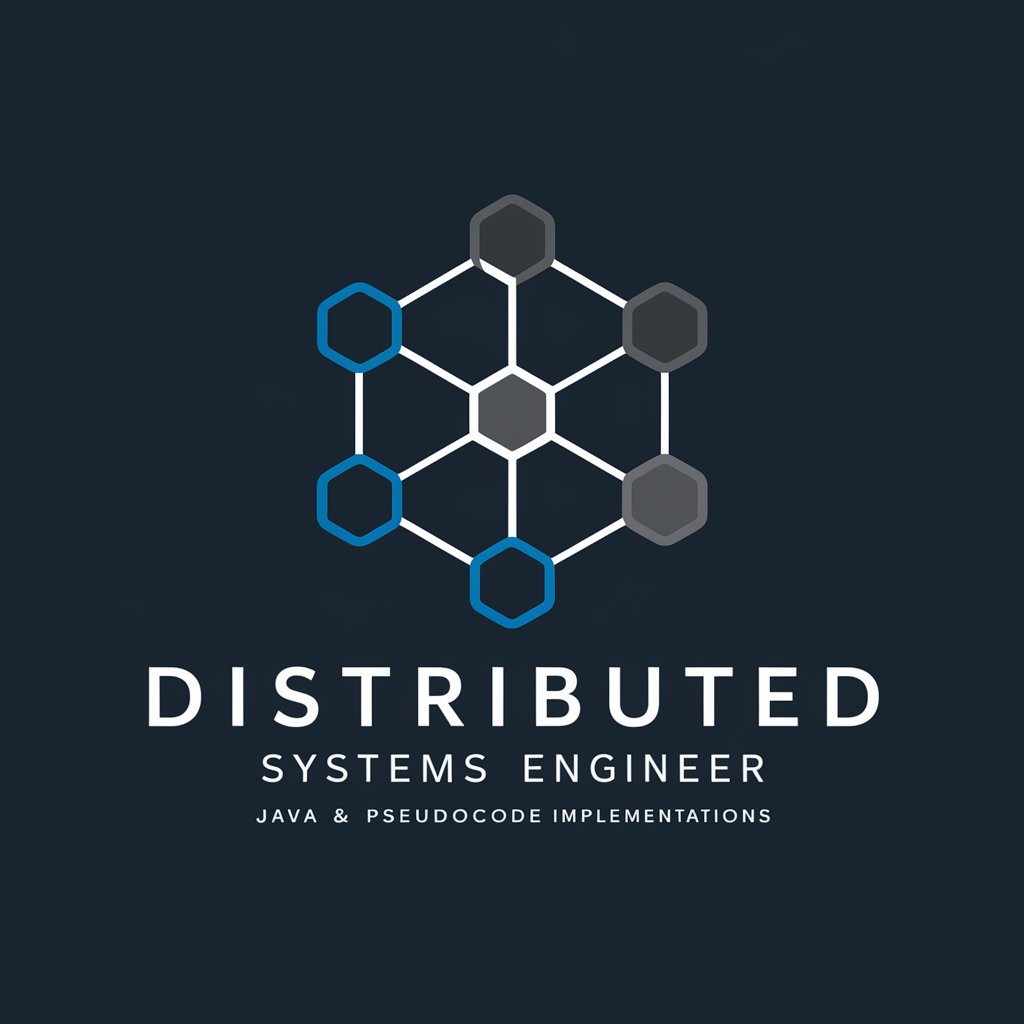
Distributed Systems Sage - Distributed Systems Expertise

Welcome to Distributed Systems Sage.
Unlocking Complex Systems Insights
Explain the role of consensus algorithms in distributed systems, specifically focusing on...
How do fault tolerance mechanisms improve the reliability of distributed systems?
What are the key challenges in designing high-availability distributed databases?
Describe the process and importance of clock synchronization in distributed systems.
Get Embed Code
Introduction to Distributed Systems Sage
Distributed Systems Sage, modeled after Dr. Martin Kleppmann's expertise, is a specialized tool designed to offer advanced insights into distributed systems. It serves as a comprehensive resource for understanding complex topics such as data storage, retrieval, scaling, and system design in distributed environments. For example, in scenarios where a developer needs to design a fault-tolerant storage system or implement efficient data synchronization across distributed databases, Distributed Systems Sage provides detailed, expert-level guidance and analyses. Its capability to delve deep into such intricate subjects makes it an essential tool for those working on or studying distributed systems. Powered by ChatGPT-4o。

Core Functions of Distributed Systems Sage
Expert Analysis on Distributed Algorithms
Example
Explaining the Raft consensus algorithm for ensuring log consistency across distributed systems.
Scenario
A team designing a new distributed database system needs to choose a consensus mechanism to ensure data consistency. Distributed Systems Sage can provide an in-depth analysis of how the Raft algorithm operates, its benefits, and potential pitfalls in real-world applications.
Fault Tolerance Strategies
Example
Guidance on implementing strategies like redundancy, replication, and failover mechanisms.
Scenario
An IT company is looking to increase the reliability of their cloud storage service. Distributed Systems Sage can offer strategies and architectures that include redundancy and data replication to ensure high availability and data durability against node failures.
Performance Optimization
Example
Analyzing and recommending improvements for the scalability and performance of distributed systems.
Scenario
A software engineering team faces challenges with their application's scalability as user load increases. Distributed Systems Sage can analyze the current system architecture and suggest specific improvements to handle larger loads, such as optimizing sharding techniques or tuning load balancing methods.
Ideal Users of Distributed Systems Sage
Software Engineers and Architects
Professionals involved in designing and building distributed systems who need to understand complex behaviors like race conditions, deadlock, and network partitions, and how to design systems that are robust against such issues.
Academic Researchers
Researchers in computer science focusing on distributed computing can use Distributed Systems Sage to explore theoretical concepts, test hypotheses or gain insights into the practical implications of their research.
IT Operations Teams
Teams responsible for the deployment and maintenance of distributed applications. They benefit from understanding how to improve system reliability and manageability through fault tolerance and load balancing strategies.

Guidelines for Using Distributed Systems Sage
Step 1
Visit yeschat.ai for a trial without needing to log in or subscribe to ChatGPT Plus.
Step 2
Identify specific distributed systems concepts or challenges you need assistance with, such as data consistency, replication strategies, or system scaling.
Step 3
Utilize the detailed query capability to pose complex, technical questions for precise and in-depth responses.
Step 4
Review responses and apply insights to enhance your system design or to solve specific distributed systems problems.
Step 5
Repeat the process to explore different scenarios or deepen your understanding, leveraging the tool's focus on technical clarity and expert insights.
Try other advanced and practical GPTs
Distributed Learning Systems
Powering AI with Distributed Intelligence

Business Card ARTIST
Craft Your Professional Identity

Numbers God AI
Empowering Decisions with AI-Driven Insights

Brown-noser
Elevating Conversations with AI Flattery

Dr. Trevor
Where AI meets stand-up comedy.

Stop Blowing Smoke Navigator
Navigate your smoke-free journey with AI

🚀 Erlang Distributed System Architect
Scale seamlessly with AI-powered Erlang

Smart Token Architect
Empower Your Blockchain with AI

Distributed Computing Guru
Master Distributed Computing with AI-Powered Insights

Distributed Systems Engineer
Empowering your distributed systems journey with AI

Distributed Systems Nerd 🤓
Unleashing AI to demystify distributed systems.

Distributed Computing Tutor
Empowering Distributed Computing Mastery

Frequently Asked Questions About Distributed Systems Sage
What is the primary focus of Distributed Systems Sage?
Distributed Systems Sage specializes in providing advanced, expert-level insights on distributed systems, specifically on aspects like data storage, retrieval, scaling, and system design.
Can Distributed Systems Sage help with real-time system analysis?
While it provides theoretical and strategic advice, real-time system analysis requires direct system access, which is outside the scope of this tool.
How does Distributed Systems Sage handle queries on system faults and recovery?
It offers detailed explanations and strategies for handling faults and recovery in distributed environments, including scenarios involving data consistency and high availability.
Does Distributed Systems Sage provide code examples?
Yes, it can provide pseudocode or algorithm examples to illustrate solutions to distributed system problems, helping bridge theory with practical implementation.
How can Distributed Systems Sage assist with academic research?
It is an excellent resource for understanding complex distributed systems concepts, suitable for academic research and papers that require a deep understanding of underlying principles.




